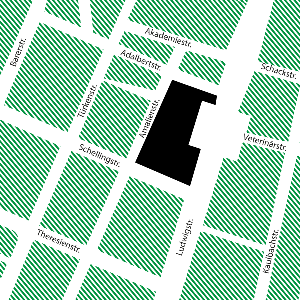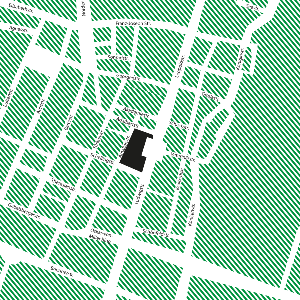Beschreibung des Studienfachs
The research-oriented, consecutive Master's degree program in Digital Cultural Heritage teaches both critical approaches to the study of cultural heritage and state-of-the-art techniques for the documentation, preservation, analysis and presentation of digital cultural data and representations of cultural heritage in the digital age. The program bridges the gap between research in the humanities and the study of cultures on the one hand and digital technologies on the other. The program provides knowledge of the theoretical, practical and ethical concerns and debates in the field of cultural heritage research as well as a wide range of cutting-edge digital technologies for capturing cultural data. Students acquire skills in managing, structuring, analyzing and curating cultural data in a meaningful way with regard to research interests in the humanities and cultural sciences as well as practical concerns of museums, heritage conservation and related fields of activity.
Focal points are:
- Data Capture and Processing: Investigating and protecting the cultural and material legacies of the past through digital/geospatial data collection, and data processing.
- Data Analysis, Computation and Presentation: Analyzing and visualizing the ancient world through computational, geospatial, or data science methods, including GIS, BIM, and Artificial Intelligence.
- Data Curation, Preservation and Semantic Web: Developing new theoretical and methodological frameworks for digital knowledge extraction, integration, representation, curation, and preservation.
- Outreach and Societal Engagement: Understanding the effects of digital technology on cultural heritage and society in terms of values and ethics, citizen participation, and science communication.
Zugangsvoraussetzungen
Prerequisite is a professionally qualifying university degree (at least 180 ECTS) in a humanities, cultural, environmental or information science subject related to cultural heritage (e.g. archaeology, history, art history, computer science, data science).
Applications must be submitted to the Institute for Digital Heritage Studies by June 15 for the following winter semester. More information is available here.
Tätigkeits- und Berufsfelder
The program qualifies students for jobs in science, cultural institutions and the digital economy. Potential professional fields are:
- Research institutions and universities
- Museums, archives, libraries and heritage conservation
- Digital cultural services, cultural start-ups, software development
- Media, exhibition and science communication
- Project work in national and international cultural programs
- Digitization and AI projects with relevance to the study of cultures
Applicants should have a dual interest in humanities and the study of cultures and computational and digital methods and techniques, ideally (but not necessarily) having gained experience in both areas in their undergraduate studies. They should prefer an interdisciplinary approach to knowledge and have a strong interest in cultural heritage research and practice. They should also be open-minded and able to work in interdisciplinary and international teams.
Fakten auf einen Blick
- Studiengang
- Digital Cultural Heritage (Master)
- Abschlussgrad
- Master of Arts (M.A.)
- Fachtyp
- Hauptfach
- Regelstudienzeit
- 4 Fachsemester
Bewerbung und Zulassung
- Zulassungsmodus 1. Semester
- Eignungsverfahren
- Zulassungsmodus höheres Semester
- Eignungsverfahren
- Zugangsdetails
-
Prerequisite is a professionally qualifying university degree (at least 180 ECTS) in a humanities, cultural, environmental or information science subject related to cultural heritage (e.g. archaeology, history, art history, computer science, data science).
Applications must be submitted to the Institute for Digital Heritage Studies by June 15 for the following winter semester. Further information here.
- Link zum Fach
- Master Digital Cultural Heritage
Ihr Weg zum Studienplatz
Der Studiengang im Detail
(P = Pflichtmodul, WP = Wahlpflichtmodul, ECTS = European Credit Transfer System Punkte)
1. Fachsemester
- P 1 Fundamentals of Digital Cultural Heritage (6 ECTS)
- P 2 Foundations and Methods in Digital Cultural Heritage (6 ECTS)
- Wahlpflichtmodul WP 1–3 (z. B. Programming, Webtechnologien, Kulturanalyse)
2. Fachsemester
- P 3 Theoretical and Epistemological Perspectives on Culture and Heritage (9 ECTS)
- P 4 Computational Thinking and Programming for DCH (9 ECTS)
- Wahlpflichtmodul aus WP 4–WP 78
3. Fachsemester
- P 5 Internship I (6 ECTS)
- P 6 Research Design and Professionalization (9 ECTS)
- P 7 Cultural Heritage, Technology, and Society (9 ECTS)
- Wahlpflichtmodul aus WP 4–WP 78
4. Fachsemester
P 8 Final Module (30 ECTS), bestehend aus:
- Masterarbeit (27 ECTS)
- Disputation (3 ECTS)
Compulsory elective modules come from areas such as Computer Science (e.g. machine learning, UX design, big data), Archaeology, Ethnology, Sinology, Egyptology, Japanese Studies, European Ethnology and Empirical Cultural Studies and many more. A maximum of six compulsory elective modules must be completed.
Institut für Digitale Kulturerbestudien
Institut für Digitale Kulturerbestudien
Sprechstunden, Aushänge, Änderungen des Lehrangebots For any questions concerning the program, admission, or the organization of your studies, please contact the program coordinator.
Fachstudienberatung Digital Cultural Heritage
Zentrale Studienberatung

Prüfungsamt für Geistes- und Sozialwissenschaften
Prüfungsangelegenheiten, Prüfungsanmeldung, Semesteranrechnungsbescheide

